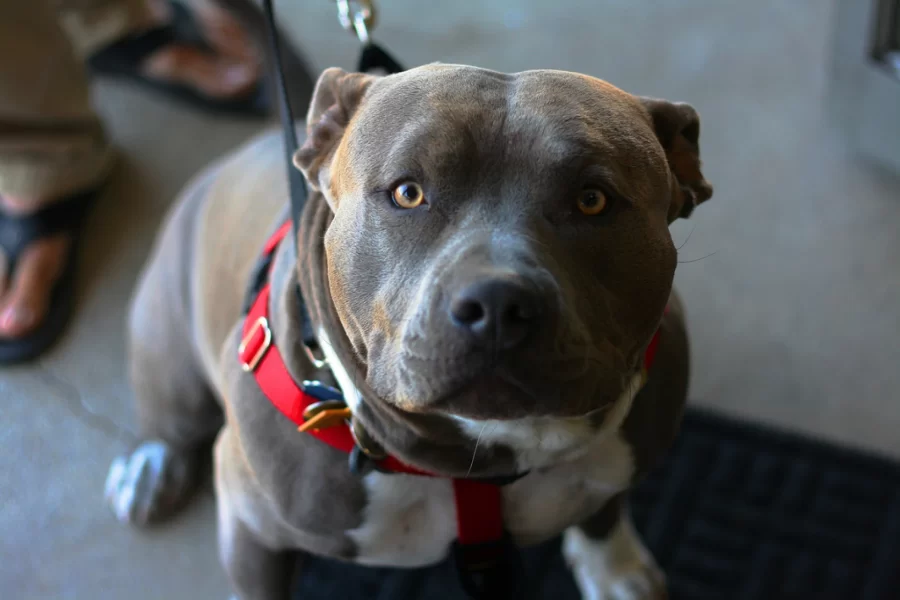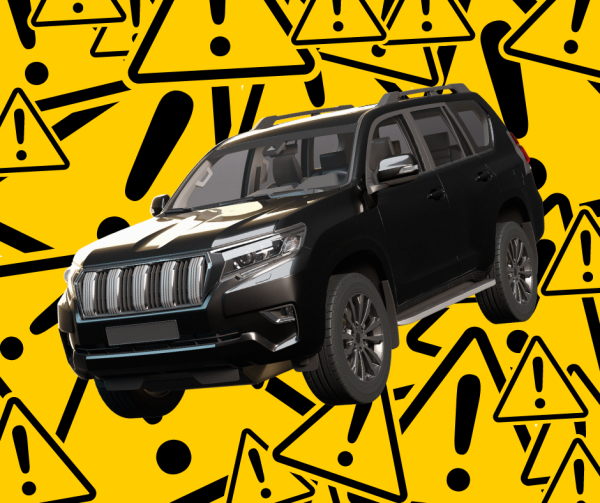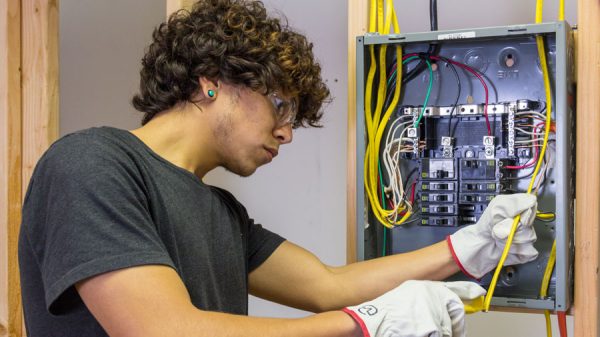The pit bull bias
Pit bulls are one of the most infamous dog breeds, and are often the victims of violent stereotypes. But are these stereotypes accurate, and should we be concerned about the breed as a whole?
Pit bulls have gotten a bad rap throughout the last century
January 5, 2023
Pit bulls, just like so many dogs, have been unfairly labeled as a dangerous breed. Their reputation often misleads people into believing that they should avoid the dogs and fear them. The stereotype is not only untrue, but also harmful to the breed as a whole. According to Rescue Dog Home, a nonprofit group that rescues strays, “around 75% of municipal shelters euthanize Pit bulls immediately upon intake.”
The main factors contributing to their generalization are physique and history with dog fights. Pit bulls are ubiquitous among images and stories of dog fighting rings, and have been made popular with stories like former Eagles quarterback Michael Vick’s dog fighting kennel in Virginia. In popular media, pit bulls are often associated with fighting and violence, which has not helped the breed throughout the last several decades. Stories and images like these have led to extreme measures in some parts of the country, like acquiring a special permit to even own a pit bull.
Moreover, the name “pit bull” is also misleading in and of itself, as the name has become a catch-all for several different breeds of dogs, most commonly the American Pit Terrier (or Pit Bull Terrier), but also the bull terrier, American Staffordshire Terrier, and Staffordshire Bull Terrier. According to Britannica.com, the American Kennel Club doesn’t even recognize the larger “pit bull” breed.
Originally, pit bulls were bred to bite and hold onto large animals, such as bears and bulls, says the ASPCA, a nonprofit dedicated to ending and educating about animal cruelty. Later in history, this was taken advantage of for dog fighting and entertainment. This is what ultimately led to the assumption that pit bulls were a dangerous breed. Many people often connected them to the brutality of the fights and continue to have that idea to this day. In truth, those who participated in dog fights could have switched out a pit bull for any other breed, and the dogs would have reacted the same. The dogs that were used in such fights were trained to be aggressive. It was a learned behavior.
Considering a dog’s environment and training is crucial to knowing how they will react to others. Some pit bulls are dangerous because they were raised to be. With proper training and care, those dogs may have been just like the standard golden retriever. Just as people are conditioned by their environment, so are dogs. Most pit bulls would not react in such a manner. Most of the time, when pit bulls do act violently, it is because they feel provoked or threatened.
“There are situations where a friendly dog may become aggressive, such as in defense of itself or of its family members,” said Dr. Megan Odgers, a veterinarian at Princeton Animal Hospital. “More often, aggression occurs when subtle warning signs of uncomfortable body language are ignored.”
The bias against pit bulls makes it easier to misinterpret this self-defense as violent behavior. As many are aware, pit bulls can look very intimidating due to their large builds. This is one of the main contributors to the bias as a whole. However, what many forget is that even if an animal is strong, that does not make them inherently aggressive.
As an unconventional comparison, the same is true for horses. While many do not consider it, horses are incredibly strong animals, seeing as they are able to carry 400 lbs. Not only that, but they often weigh around 900-2,000 lbs. Caretakers must be careful around their horses because, while they are not inherently dangerous animals, they could accidentally hurt their owner due to their size. Pit bulls want to show their love to them by jumping on them and playing with their owners the same way a small dog would. They do not understand their strength in the same way a horse does.
This can be easily corrected with proper training and care. Taking the time to teach your pit bull basic tricks such as “stay” or “sit” could prevent anything from happening. Pit bulls are some of the sweetest dogs, and they just need to be taught that they need to be careful. You will find that pit bulls are loyal, protective and great family dogs.
“I love them so much,” said senior Rebecca Kaserkie. “I think that they are really cute, and I just love how bulky they are. In all the experiences I’ve had with pit bulls, they are incredibly sweet.”
The pit bull bias is one of the most heartbreaking stereotypes when it comes to dogs. It is based on a dog’s look and treatment rather than the breed itself. They do not deserve the label “dangerous” or “banned” because of the assumptions we have grown accustomed to.












